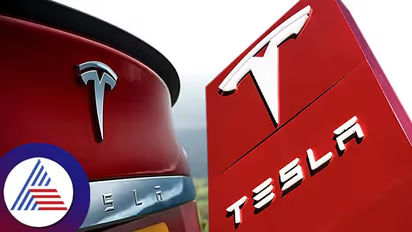India's new EV policy sparks Tesla's market entry ambitions; check details

Synopsis
Under the new policy framework, companies meeting the investment and manufacturing criteria will qualify for importing a limited number of electric vehicles at a reduced tax rate of 15% for cars priced at $35,000 and above.
India on Friday (March 15) announced its intention to reduce import duties on specific electric vehicles for companies pledging a minimum investment of $500 million in manufacturing facilities within three years, potentially opening the doors wider for Tesla's market entry plans.
This policy marks a significant victory for Tesla, aligning closely with the company's lobbying efforts in New Delhi. It is reportedly said that Tesla had last year proposed constructing a factory but sought import duty reductions, which CEO Elon Musk argued were among the world's highest.
Tesla CEO Elon Musk has long sought to step in the Indian market, but New Delhi's stance had been contingent on a commitment to local manufacturing. Recent months have seen several visits by Tesla officials to India, including a meeting between Musk and Prime Minister Narendra Modi last year.
Under the new policy framework, companies meeting the investment and manufacturing criteria will qualify for importing a limited number of electric vehicles at a reduced tax rate of 15% for cars priced at $35,000 and above. Presently, India imposes import taxes ranging from 70% to 100% on imported cars and electric vehicles, depending on their value.
Tesla's most affordable model, the Model 3, starts at $38,990 in New York, as per the company's website. However, Tesla has yet to respond to requests for comment on this development.
Commerce Minister Piyush Goyal, speaking at a press briefing following the policy announcement, encouraged global companies to consider investing in India. He expressed confidence that India could emerge as a global hub for electric vehicle manufacturing, thereby generating employment opportunities and enhancing trade.
Goyal emphasized that the policy would benefit consumers by making electric vehicles more affordable while also supporting the government's goal of reducing oil imports and conserving foreign exchange reserves.
Stay updated with the Breaking News Today and Latest News from across India and around the world. Get real-time updates, in-depth analysis, and comprehensive coverage of India News, World News, Indian Defence News, Kerala News, and Karnataka News. From politics to current affairs, follow every major story as it unfolds. Get real-time updates from IMD on major cities weather forecasts, including Rain alerts, Cyclone warnings, and temperature trends. Download the Asianet News Official App from the Android Play Store and iPhone App Store for accurate and timely news updates anytime, anywhere.